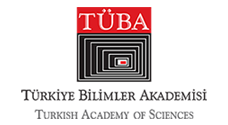The Transformation of Health Education in A Pandemic Era

The Transformation of Health Education in A Pandemic Era
Higher education was interrupted in many countries due to the COVID-19 outbreak. In countries with infrastructure, distance and remote learning was initiated. While theoretical trainings and lectures are carried out relatively successfully, problems related to applied trainings continue to be discussed. Practical training, clinical internships, and field practices in almost all health programs, especially in medical education, have been suspended in many countries. Not only associate and undergraduate education, but also studies of doctoral students who continue postgraduate education, specialty education and clinical research have been affected by the pandemic. Fast track graduation can be discussed, especially in countries where additional postgraduate measures exist: if healthcare personnel are required to pass applied proficiency exams or attend supervised study that are mandatory after graduation. As a matter of fact, obligations such as post-graduation handson internships, supervised work phases or a master’s degree in certain health programs provide additional education and experience. In countries where health programs graduates can take part in the provision of health services without any secondary filter or educational processes, as in our country, the subject should be handled differently. Our medical graduates start their compulsory service directly, and our graduate nurses, midwives and dentists can also participate directly in the provision of health services. The primary issue here is not to ignore the competencies and achievements of the relevant program, to correctly evaluate the authorities given by the diploma and to decide accordingly. Therefore, while evaluating the measures and decisions taken in health education during and after the COVID-19 pandemic, issues such as the type of education and post-diploma processes of the relevant country, whether there are secondary processes for competencies and achievements, and the presence of state/board exams or not should also be taken into consideration. Alternative methods need to be developed on how to make compensatory training to fulfill the gaps occurred during the epidemic, for gaining competencies of the health training… The use of artificial intelligence in training and diagnosis, digital education, virtual reality applications in surgical practices, virtual patient interviews… All in digital environment… But physical distance and digital transformation cannot be the only solution or transformation we need. Still the digital transformation that are currently underway will reveal many innovations and expansions and may enable us to adapt them in our routine life soon, while it could take almost 10 years to achieve the same level in a normal evolution.
